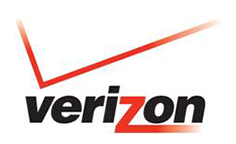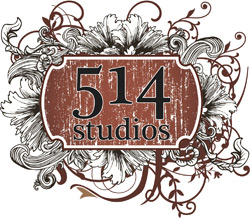| |||||||||||||||||||||||||
| |||||||||||||||||||||||||
| |||||||||||||||||||||||||
Minnesota Rising 101
▼
Thursday, April 30, 2015
[Minnesota Rising Dispatch] April 2015
Wednesday, April 29, 2015
Accepting Applications: 2015-16 Humphrey Policy Fellows
While the academic year is nearing completion at the University of Minnesota, the Humphrey School of Public Affairs is now seeking applicants for the 2015-2016 Policy Fellows program. Read on for more details about a program that can help Minnesota leaders make a greater impact and take their careers and work to the next level. Applications are due June 1st for the program beginning in September.

Applications are now available for the 2015-2016 Policy Fellows program, one of the country's most respected leadership programs for emerging and mid-career professionals. Connect with a cohort of 35 people across the work and political spectrum who will broaden your perspectives and expand your network as you engage in a high-level professional experience. Gain practical skills and experiences to take your own career and civic work to the next level.
The Policy Fellows meet once per month between September and June to explore fundamental aspects of leadership, and travel to Washington, D.C. for a multi-day trip with prominent elected officials and national public affairs leaders. Fellows represent business, nonprofit, and public sectors across the state of Minnesota.
Applications are due June 1, 2015 for the program beginning in September. Scholarships are available; those specifically for nonprofit sector participants are made possible by generous gifts from the George Family Foundation and the Jay and Rose Phillips Family Foundation of Minnesota. Applicants from Greater Minnesota are encouraged to apply, and are eligible for lodging assistance.
More information at http://ow.ly/KcS0i
The Policy Fellows program is based at the Humphrey School of Public Affairs at the University of Minnesota.
Tuesday, April 28, 2015
Accepting Applications: K880 Emerging City Champions Fellowship
Love Saint Paul and have ideas to make it more livable? Consider applying for the K880 Emerging City Champions Fellowship, which will equip 24 leaders under age 30 with the skills, knowledge, and support needed to make immediate and lasting local impact. See below for more details and be sure to apply by the May 8th deadline!
|
Monday, April 27, 2015
Happiness
Copyright: / 123RF Stock Photo
"It is not easy to find happiness in ourselves, and it is not possible to find it elsewhere."
-Agnes Repplier
Friday, April 24, 2015
Accepting Applications: The LEAD Project Board
Seeking to connect young professionals with nonprofits in the Twin Cities, The LEAD Project invites you to join their efforts. Consider applying for their board of directors by the April 30th deadline. See below for more details about the opportunity and submit your resume and application today!
|
Thursday, April 23, 2015
[Blog Buddies] Reading Rutabaga Review: "Linh and the Red Envelope" by Diane Tran
An avid reader based in southern Minnesota, my friend Lisa refers to herself as the "Reading Rutabaga." She recently reviewed my book, Linh and the Red Envelope, which I'll have the opportunity to read at the Minnesota History Center on April 25 for Asian Pacific Heritage Family Day. Visit her blog for the official book review and see below for the author interview!
* * *
"Linh and the Red Envelope" by Diane Tran
I am thrilled to share this post with you about Linh and the Red Envelope. The author, Diane Tran, is someone whom I’ve been able to call friend for over a decade. She’s a world traveler, leader, project manager, German Marshall Fund of the United Sates American Fellow, and overall inspiring friend, role model and individual. I’m so proud of her newest title: author!
* * *
Diane, thank you for taking the time to answer some questions! You have an impressive resumé. What is it like to add “author” to your list?
Thanks for the invitation to join you on the Reading Rutabaga, Lisa! I've really enjoyed your insights here on different pieces of writing and literature, and consider it an honor to be featured on your blog.
As an experiential learner, one of my favorite things to do is to try things for the first time. While I have blogged for several years, it has been a long-held dream of mine to write a children's book, so it was an incredibly gratifying endeavor. I'm especially excited because it's the kind of story—a young female Asian protagonist relating to challenges that are at once universal and distinct to her culture—that I never knew existed when I was young. I often wonder whether and how things might have been different or easier for me if I'd had access to these kinds of narratives when I was younger. And so I'm hopeful that this book being out in the world now can make a positive difference for young children today.
You wrote your story for the Reading Together Project for a specific purpose: “to address the lack of children’s books that speak to the experience of being an Asian Pacific Islander (API) child or youth in the United States.” Especially for APIs, what kind of impact do you think reading of API title characters will have on them? Do you think it might have a creative or proud cultural impact?
I'm hopeful that through getting to know Linh, her mom, and her grandmother, API children will be able to see their own realities and experiences reflected back to them as normal and significant. For API and other marginalized communities, the result of not seeing others like you—your race, class, ability, immigration status, faith, etc.—in literature, the media, or popular culture has the effect of making you feel invisible. Unnoticed, unimportant. (Paradoxically, it can also create the feeling of being overly exposed and in the spotlight in an undesired way: When as the only different person in the room, you're looked at as the "other" or presumed to be speaking for your entire ethnicity, gender, etc.) And if there are characters that look like you, they often times serve to portray stereotypes that are limiting and/or harmful. This effectively reduces diverse populations to a single characteristic or function, devoid of any further humanity. This under-representation and mis-representation mirrors the way in which the dominant culture relates to or experiences minority groups. And so, by creating our own narratives and sharing our lived experiences, we can begin to see our realities as valid and meaningful and in the process, and humanize ourselves and each other.
Can you tell us about the Reading Together Project?
Funded by the Arts and Cultural Heritage Fund and created as a partnership between the Minnesota Humanities Center and the Council on Asian Pacific Minnesotans (CAPM), the Reading Together Project focuses on amplifying missing narratives from the Asian American and Pacific Islander communities, supports the development of English literacy skills while recognizing cultural heritage, and creates opportunities for children and families to learn about API cultural heritage together. Seeking to address the lack of children’s books that speak to the experience of being an Asian Pacific Islander (API) child or youth in the United States, the project has published six children's books in recent years. In 2012, the project produced two chapter books written for a third grade reading level, and in 2013, four picture books written for a 1st - 3rd grade reading level were published. My book was published in the most recent round, which selected four writers and four illustrators through a competitive process and allowed us to pair up and work collaboratively to develop the books. A copy-editor helped provide clarity to and tighten up my original writing submission, my book's illustrator, Alex Shimkus, brought the story to life with vivid imagery and visual detail, and the project's layout editor and publisher fashioned it into a 32-page paperback book. The whole process took nine months from submission and selection to the book launch event in October, and was exciting, challenging, and a lot of fun!
Can you tell us more about the tradition of giving red envelopes?
In Chinese and some other Asian cultures, red envelopes are given during holidays, such as the Lunar New Year, or to celebrate special occasions, including weddings, graduations, and the birth of a baby. Red envelopes usually contain money, though you may occasionally find candy or a proverb enclosed. Traditionally, red envelopes are given by married couples to the unmarried, who are typically younger and/or children. The red color signifies good luck and so my mom always tells me, the money you find inside is lucky!
In many ways, this story is autobiographical. As a young girl growing up as the first generation born in the United States to refugee parents, I struggled to know how to be a "good daughter." In terms of my family and Asian culture, I understood this to mean that I should respect my elders, help to clean the house, and care for my siblings. As I navigated my school and community surroundings, though, I found that there were other measures of success, including academic ambition, student leadership, and civic engagement. While it was clear to me that these were all important values and roles, in some ways it felt like they were in conflict with one another. Pursuing too much of one or the other might diminish my chances for public or professional success or alternatively, move me further away from the heritage and traditions that felt core to my identity.
I attempted (with varying results) to balance the two, and over the years, I began to see opportunities to apply my love for organizing and community building to advocating for my family members and building a stronger sense of cohesion within my family of origin as well as extended family. I supported my dad on his journey to earning his citizenship and I leveraged my perspective as a member of several marginalized communities to deepen policy discussions that impacted those communities. What I came to see over time was that there was not one "right" or "good"' way to care for those in my life, but that my search to discover where my duties, strengths, and passions aligned was part of my path to being fully myself - as a loving daughter and sister as well as an engaged community leader.
Your main character, Linh, struggles to know that goodness doesn’t come from doing things perfectly, but having a willing spirit and wanting to do the right thing. How important is it to you to get that message across to all children? That it isn’t about being perfect at new things, but of wanting to do each thing and be willing to work at it?
My book's dedication reads: "For every kid trying to do the right thing. Know that you already are the right thing." While I think it is critical for children to know and believe this, part of me wonders if it's really the kids that we need to tell this to, or instead the adults. Children are full of boundless energy and observations and curiosity. As adults, we have the responsibility of rearing our children, nieces and nephews, and students so that they respect themselves and each other, and can contribute positively to this world. But in so doing, we may inadvertently relay to children that we are the ones who know best for them and that they need to behave or be a certain way in order to be acceptable. This poses a challenge to children just as they are beginning to learn the important life skills of trusting themselves and accepting themselves for who they are. So, I think I'd offer messages to both children and their parents: Children, you don't have to earn your role as someone's child, you already are. Parents, guide your children lovingly, knowing that viewing your child as the gift that they are allows them to fully trust and believe it.
Where can readers purchase your book?
The book is available for purchase on Lulu.com. A free PDF copy of the book is available online, along with an Educator Guide, in the Minnesota Humanities Center Absent Narratives Resource Collection.
Wednesday, April 22, 2015
You're Invited: SMBMSP #77 - The Business of Food Blogging
Food. It's what's for dinner. And the topic for SMBMSP #77 entitled, "More Than a Pic of Your Plate: The Business of Food Blogging." See below for a session description and line-up of stellar local foodie panelists. Bon appétit!
|
Tuesday, April 21, 2015
Accepting Applications: Roy Wilkins Center Community Fellows Program
The Roy Wilkins Center for Human Relations and Social Justice at the University of Minnesota is seeking applicants for their second Roy Wilkins Community Fellows Program. The program provides leaders of color from Minneapolis organizations an introduction to policy analysis techniques in order to strengthen evaluation capacity within communities of color. See below for more details and apply by the May 1st deadline!


Community Fellows Program

Wilkins Community Fellows Program
We are now accepting applications for the Second Wilkins Community Fellows Program Workshop. Please note that our deadline is May 1st, 2015.
To access the Wilkins Community Fellows Program Application CLICK HERE
If you were unable to attend the Informational Meeting and would like to access the PowerPoint about the Program CLICK HERE
Traditional approaches to policy analysis, developed for the majority population, do not factor in the structural differences that exist between communities of color and majority-group communities. Communities of color, therefore, are at a disadvantage when conventional policy analyses are undertaken. One example is evaluation. Non-profit evaluation does not align automatically with academic evaluation, which often entails randomized trials or sophisticated methods of matching control and experimental groups. Nevertheless, it is academic evaluation that will produce the evidence to support local remedies in the face of skepticism by policy makers and decision makers. Widespread, respected tools of policy analysis, designed for the majority population, must be adjusted or reevaluated when examining the causes of inequality to be certain that their application is reaching the people who have the problem. Researchers trained in advanced tools of policy analysis at the Roy Wilkins Center will guide community leaders in understanding and applying sophisticated methodologies in assessing the effectiveness of their programs.
The Roy Wilkins Center asks, “Does this policy work for the communities of color?” when other researchers only ask, “does this policy work?” In short, we are able to model the complexity of the policy problem while keeping race and ethnicity central to the analysis.
Roy Wilkins Center research can permanently transform how policy research and policy analysis on problems confronting communities of color are conducted in the Twin Cities. Its findings can be translated into ammunition for communities of color to make their own case to funders and policy makers. The benefits of establishing accurate, external validity for remedies to racial and ethnic inequality will have significant influence on public policies in the future.
The Wilkins Community Fellows Program addresses structural causes of inequality and provides a framework for creating social change using two approaches:
1. Build the capacity of local community based organizations to use the tools of policy analysis and evaluation with the assistance of Wilkins Center graduate students trained in policy analysis;
2. Prepare leaders of communities of color, via Wilkins Center graduate Students to make their own cases or social change.
Course Objective
This course provides an introduction to policy analysis. Participants will be able to understand basic concepts and terminology of policy analysis and understand the strengths and weaknesses of alternative approaches to policy analysis. Two key elements of policy analysis are emphasized: problem structuring and recommendation.














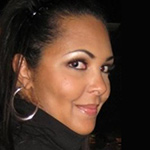 Mecca Bos-Williams
Mecca Bos-Williams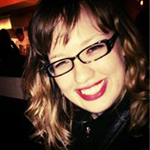 Maja Ingeman
Maja Ingeman Mike Mitchelson
Mike Mitchelson Chrissy Taylor
Chrissy Taylor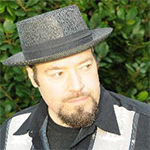 Christopher, co-owner, with his wife Mary, of
Christopher, co-owner, with his wife Mary, of 

